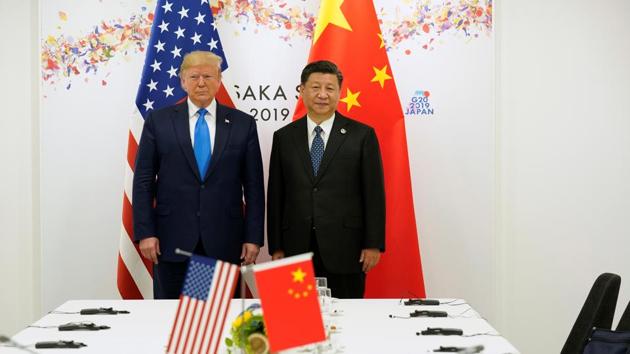What does the US-China rift mean for the world? | Opinion
The international system may not revert to Cold War era blocs. But some tough choices lie ahead for countries
The rhetoric between the world’s two largest political powers — the United States (US) and China — has heated up. The trend began several years ago, during Barack Obama’s presidency. But it grew under Donald Trump’s tenure, and intensified following in the wake of the coronavirus pandemic. Chinese diplomats have adopted a more strident tone, described as “wolf warrior” diplomacy after a popular Chinese action film. US officials like Secretary of State Mike Pompeo and Deputy National Security Adviser Matt Pottinger have shot back. The blame game caters to the domestic constituencies of both countries, but also complements the intensifying geopolitical competition between Washington and Beijing.

The hardening language and policies by the US and China have worried observers elsewhere, including in Southeast Asia, Europe, and indeed in India. For more than two decades, many had grown accustomed to a comfortable arrangement that involved bolstering economic relations with China, preserving a stable defence partnership with the US, and enjoying cordial political and diplomatic relations with both. For some countries, defence cooperation with Washington facilitated a beneficial economic partnership with Beijing by mitigating the perceived risks and justifying lower defence expenditures. Now, many are openly worried about the prospect of having to make starker choices.
The appeals to Washington and Beijing to not force others to choose are unlikely to be received sympathetically. Beyond a point, the US and China will do what they want, and other countries’ concerns will be but an afterthought. It is also a self-serving narrative, perpetuating the notion that it is possible to benefit economically from China and security-wise from the US — to have one’s cake and eat it too. Consider Malaysia’s lukewarm response recently when the US navy opted to defend Malaysia’s use of it exclusive economic zone from Chinese intimidation.
Furthermore, it creates a false equivalence between the US and China. China has compelled countries to overlook its island building and militarisation in the South China Sea, and asked them to sign on to a unilateral Chinese political project in the Belt and Road Initiative. Beijing also promoted trade groupings such as the Regional Comprehensive Economic Partnership and multilateral lending agencies such as the Asian Infrastructure Investment Bank (AIIB) that deliberately excluded the US.
By contrast, the US has argued that it has promoted a more open international order, one that is less exclusionary. After all, it was Washington that advocated for China’s entry into the UN Security Council, World Bank, and World Trade Organization between 1971 and 2001. More recently, even projects like the Trans-Pacific Partnership (TPP) — from which the US eventually withdrew — opted to compete with China by raising standards, leaving open the possibility of expanded membership. But while the US did not generally compel others into adopting exclusionary practices directed at China, there have been some notable exceptions.
For example, in 2004 and 2005, the European Union (EU) — led by certain member-states and lobbied by defence companies — considered lifting its arms embargo on China. This resulted in a sharp disagreement with the US, which shared both technology and defence supply chains with Europe, at a time when transatlantic ties were already under strain following the 2003 Iraq invasion. Under considerable pressure, and internally divided, the EU eventually opted not to lift its embargo. In hindsight, it is interesting to imagine the counterfactual scenario in which Brussels had stayed the course.
A less successful attempt by Washington to get countries to pick sides occurred in 2015, when public pressure was mounted on European allies — and especially the United Kingdom — to not join the China-led AIIB. The decision by the White House to turn the AIIB into a Rubicon was confounding, given that it was an instance of China largely abiding by international standards and that its creation was compelled by US intransigence over institutional reform. This attempt proved an embarrassment for Washington. Many US allies ignored American warnings and joined AIIB anyway.
A third, and ongoing, attempt by the US to draw a red line in its competition with China involves allowing Chinese companies to compete for 5G telecommunications contracts. The US is somewhat hamstrung by not being able to provide 5G infrastructure itself, with the beneficiaries of a Chinese boycott likely to be South Korean or European firms. So far, US allies such as Japan and Australia have been at the vanguard of disqualifying Chinese companies, while the UK has openly considered breaking with Washington on the issue.
Unlike the previous episodes, which appeared to be aberrations in an otherwise more cooperative international environment, the tussle over 5G may signal the beginning of a new trend. While China drew lines in the sand — both literally, as in the South China Sea, and metaphorically at international institutions — the US has felt compelled to selectively but increasingly do so as well. The world may never revert to the kinds of blocs that characterised the Cold War. But in a more interdependent era, some tough choices are on the horizon.



